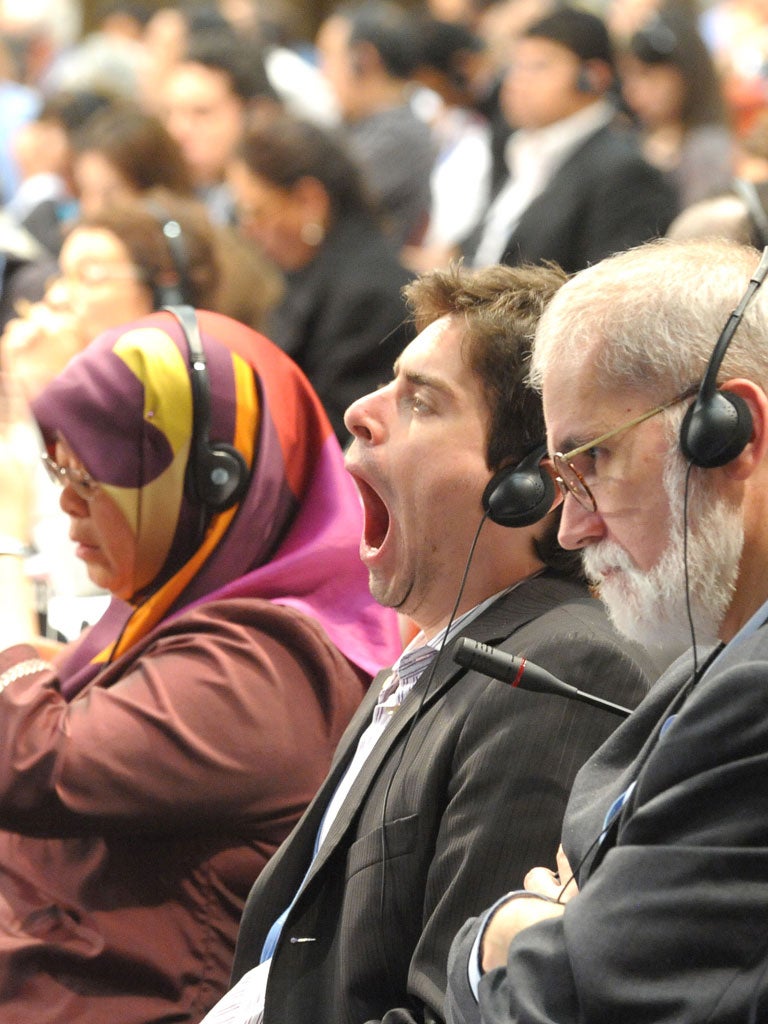No good decisions can ever be made at 4.31am
Kelner's View


Your support helps us to tell the story
From reproductive rights to climate change to Big Tech, The Independent is on the ground when the story is developing. Whether it's investigating the financials of Elon Musk's pro-Trump PAC or producing our latest documentary, 'The A Word', which shines a light on the American women fighting for reproductive rights, we know how important it is to parse out the facts from the messaging.
At such a critical moment in US history, we need reporters on the ground. Your donation allows us to keep sending journalists to speak to both sides of the story.
The Independent is trusted by Americans across the entire political spectrum. And unlike many other quality news outlets, we choose not to lock Americans out of our reporting and analysis with paywalls. We believe quality journalism should be available to everyone, paid for by those who can afford it.
Your support makes all the difference.It now seems that David Cameron willfully flouted one of my long-established rules at last week's Euro Summit. There, in between No 2 – always go to bed when someone starts singing "American Pie" – and No 4 – don't dance on the same day as you woke up – is this one: never make a decision in the hours of darkness.
There is an argument, in fact, that this is the most important of Kelner's rules, given that it could lead to all sorts of unforeseen circumstances, like, for instance, taking a decision that could leave your country being isolated and friendless among your most important trade partners. The climax of the Brussels summit that saw Mr Cameron waving his veto – the reverse of playing his joker? – came just before dawn which, sleep specialists will tell you, is the exact time that your brainpower is at its lowest ebb.
No matter whether you've had the chance for a power nap during the day (and our PM was clearly drifting off during what he called the "blah,blah, blah" of detailed debate), our biological clock is ringing alarm bells at this time, and it's saying: go to sleep! It is a not uncommon view that these all-night sessions are specifically arranged, because at some stage, and it's usually just before dawn, one of the key participants will agree to anything just to end the agony. Or, in the case of Mr Cameron, disagree with everything.
Sleep deprivation is a long-established torture tactic, so why we should think it's such a good idea for politicians on the brink of making historic decisions is quite beyond me. Clearly, there's a romantic appeal in working through the night – it lends sometimes tedious discussions an heroic lustre - but I'm afraid I'm with Sir Gerry Robinson, the former boss of Granada and a famed management guru, who once said that no job should extend beyond nine to five, and if it does it's only because of bad time management.
Of course, politics is not as simple as that, and all-night sittings at Westminster have been a feature – although much less so in recent years – of our parliamentary landscape. Members take it in turns to have a nap – something they're quite good at in the House of Lords, by all accounts – but my basic point still holds good: how can you be trusted to make the right decision when you're absolutely cream-crackered?
When night falls, according to Kelner's rules, it's when the demons come alive, when uncertainty takes a grip on one's soul, when your judgement is skewed and when all sorts of dark and unlikely thoughts crowd in one's brain.
If your sleep is interrupted at, let's say, 4.31am, the chances are that you'll start thinking about work, or friends, or family. You might think it's a good idea to tell your boss exactly what you think of him, and even begin composing your memo. But I'd hope you'd think better of it in the daylight hours. Imagine if you hadn't been to sleep at all. How crazy would you be then? You might do something seriously stupid.
Follow @Simon_Kelner
Join our commenting forum
Join thought-provoking conversations, follow other Independent readers and see their replies
Comments